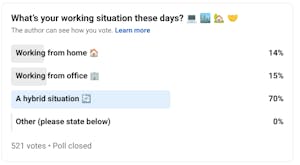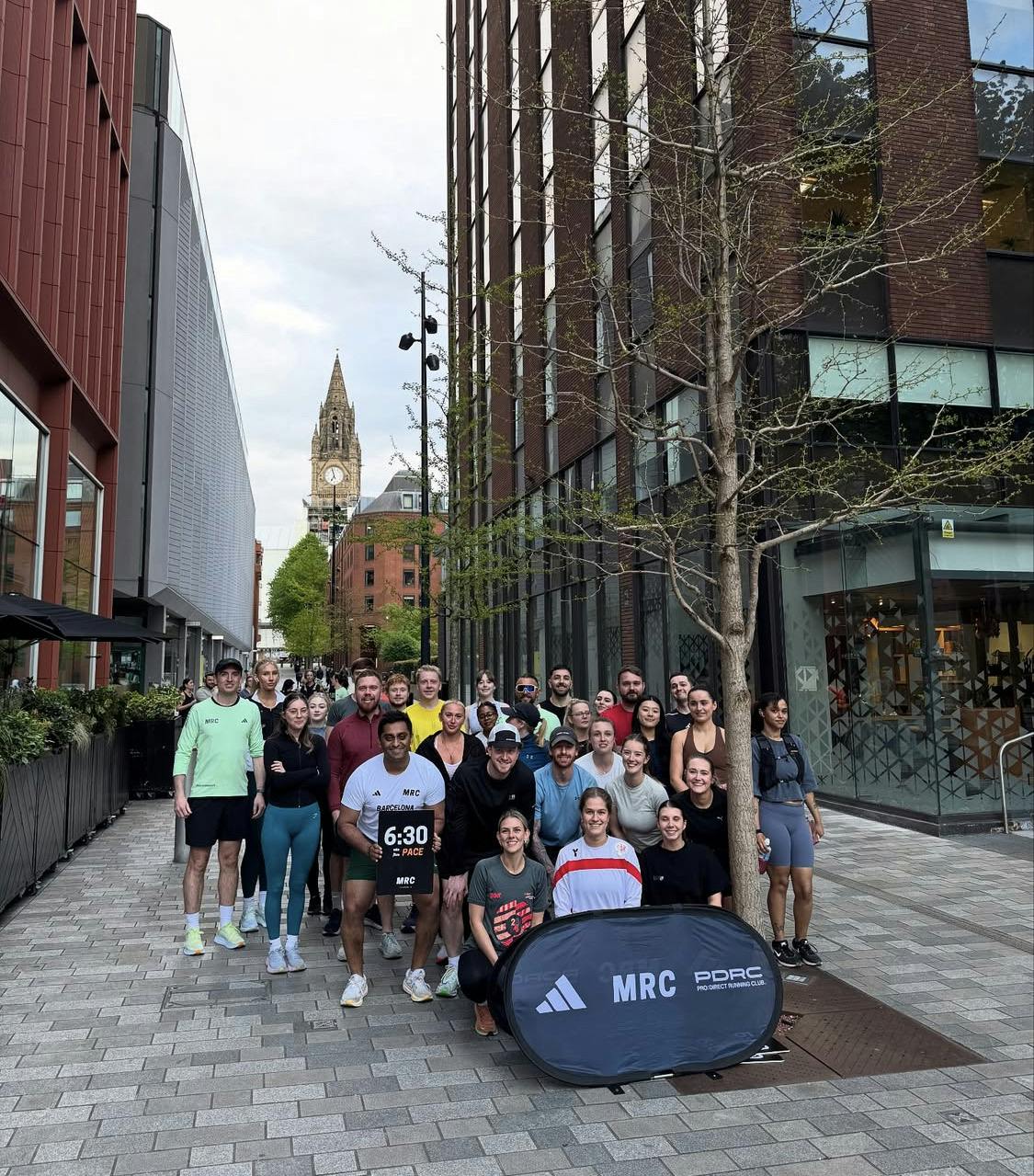
Here at Manchester Young Professionals, we, like everyone else, have faced many challenges since restrictions were imposed throughout the Pandemic. In March 2020, all of us had to adapt to a new way of living and working.
As we all know, it was virtually impossible to continue business as usual. The entire country was in lockdown and with so many obstacles to overcome to continue operations successfully, how on Earth did SO many businesses succeed and in many cases, thrive?
Despite the challenges, Manchester’s workforce pulled through in some innovative and impressive ways. From the property and legal sectors to the education and retail industries, home working was embraced by a plethora of diverse organisations. Hundreds of thousands of meetings were held over online communication platforms, many retailers digitised or updated their online sales business, and endless lessons were taught remotely.
The rise of the hybrid working model
After two years of uncertainty, two years of home working and two years of waiting for a return to normality, February 2022 saw the lifting of most Covid restrictions in the UK. Workers were encouraged to return to buildings to help rebuild our economy.
As more and more businesses have now returned to a ‘normal’ model of working, Manchester’s city centre has been revitalised with the hustle and bustle of people returning to the office. We asked members of our community about their current working situation to gain an insight into how Manchester has adapted to the lifting of restrictions.
Here’s the results:

521 people participated in the poll with 70% of those individuals claiming to work in a hybrid situation. Interestingly, research carried out by CIPD found that 40% of employers expected over half of their workforce to continue working from home regularly post-pandemic.
Prior to the pandemic, 65% of employers didn’t offer any options for employees to work from home regularly but many companies report that productivity and staff wellbeing has improved when staff had no choice.
Consequently, in December 2021, the Government responded to calls for a long-term plan in response to requests for flexible working to become the default post-lockdown. The intention of their consultation was to provide a framework to support all employees to work more flexibly in the future and this consultation is ongoing. In the run-up to restrictions ending, a survey by YouGov found that most people favoured the option of working from home some of the time, with only 39% saying they wouldn’t want to work from home again and now that most restrictions have lifted, expectations are that there will be a permanent shift to hybrid models for many employers.
What are the benefits of home working and hybrid working?
As we have now concluded that a large portion of Manchester’s population are working from home and from the office, let’s take a look at the benefits of this model:
- Smaller offices means fewer expenses – if your staff attends site on a rota system (as some businesses have adopted), there’s no need for a massive office space.
- Parking – similarly, fewer car parking spaces are required, meaning that employees can share a space.
- Environmental advantages – with rising fuel costs and the climate change agenda, businesses are prioritising sustainability and working from home more which means less commuting to the office and therefore, less pollution.
- Work/life balance – one very positive thing to come out of the pandemic was people recognising the importance of a healthy work/life balance. With less time taken up on travelling to the office, it’s easy enough to switch off the laptop at the end of the day and put your feet up/go to the gym/ play with the kids/get the dinner in.
How have different sectors responded to the lifting of restrictions?
There’s no getting away from the fact that some industries, such as retail and hospitality really suffered during lockdown and have fully embraced a return to work. If you’ve stepped out lately for a meal in the city, you’ll see our restaurants, bars and clubs are buzzing with worker bees enjoying a few pints with colleagues they’ve only seen on a computer screen for the past 2 years – the industry and the punters have been craving it! But there have been some improvements made on the back of the pandemic: many restaurants introduced apps to order and pay at your table to minimise person-to-person contact – this approach was welcomed by customers, giving them autonomy and speeding up the process – and it’s something that’s likely to remain.
How has the property sector responded to the lifting of restrictions?
The pandemic saw many predicting the ‘death of the city’, with people’s changing values supposedly prompting a dash for the countryside and flexible working unshackling former city dwellers from their office. Whilst true to a degree – many reassessed where they wanted to put down roots – cities like Manchester have bounced back rapidly as restrictions have lifted.
Manchester-based social impact developers Capital&Centric are behind new communities in the city centre, including Kampus, the garden neighbourhood to rent near the Gay Village, and Piccadilly East, with Crusader Mill and its new-build neighbour Phoenix offering design-led apartments to buyers.
Co-founder Adam Higgins said:
“The pandemic has been a driver for change in a positive way. People missed personal connections during lockdowns, meaning there’s now demand for people to live in a property community, and they’re spending more time at home, which is rightly putting pressure on developers to up their game with the homes they build. People just don’t want to live their lives in isolation in soul-free white box apartments anymore.
We’ve doubled down on the approach we were already spearheading. We’re doing more to inject character and style into our properties and we’re actively helping resident form a proper community with neighbourhood parties and meet-ups. On top of that, we want our residents to live healthy lives. Creating calm, green outdoor spaces is essential as people recognise the importance of a connection with the natural world in a way many neglected pre-pandemic.”
The education sector’s embracement of home learning and virtual classrooms
The experience for students and teachers during lockdown was varied throughout the country. Those schools and colleges who already had a remote learning element in place adapted more easily but there was a very quick scramble across organisations to determine the strengths of Google Classroom over Zoom or Microsoft Teams.
There’s no denying that some teachers struggled with sustaining student engagement despite lots of innovative approaches to keep the kids happy. Additionally, a lot of children found online learning difficult, not to mention the stress levels for teachers were at an all time high and record numbers left the profession.
However, not everyone had a hard time. We spoke to a teacher in an FE College who told us of the many advantages to teaching online:
- Attendance and punctuality were higher than they’ve ever seen – it’s a lot easier to get to college on time if you only have to travel to the living room!
- Digital literacy improved astronomically for staff and students – teaching staff learned to use a vast array of apps and digital resources to keep learners engaged and once they were used to the model, learners adapted quickly.
- Progress was fast and visible – with the ability to assess and give feedback immediately and in detail, teachers were able to see progress happening almost instantaneously.
- Rapport and team building not lost – the use of break out rooms and things like Class Notebook on Teams enabled learners to work together and build relationships with their peers and teachers.
- Work/life balance – Staff generally reported a better work/life balance because all meetings and professional development took place online and staff didn’t have to battle with rush hour traffic to then get home late evening and start marking.
The return of in-person networking for young professionals in Manchester – get involved!
For our team here at MYP, we could not be happier about the lifting of restrictions. We are absolutely over the moon to reunite with our community in hosting countless networking events for like-minded individuals. If you’re looking to make new business connections, or simply want to mingle with young, talented people – join our community. We’re constantly announcing exciting networking events in partnership with leading organisations in Manchester.
Let’s enjoy this move back to normality together – sign up for our next event or follow us on Instagram to stay in the loop.



